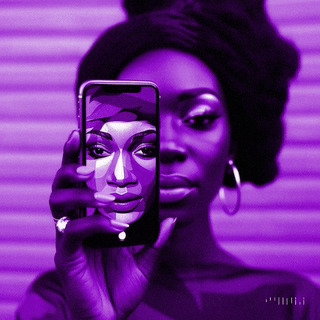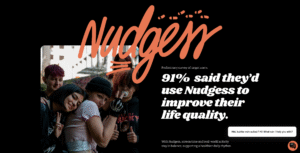3 min. read
In an era ruled by social media, it is far too easy to blame the algorithm for our screen behavior. Many people think they are somehow powerless, that powers such as Instagram, TikTok, or YouTube are dictating their fate. But here is a truer reality: the algorithm is not some external phenomenon occurring to us; it’s a mirror pool, reflecting the unconscious back.
The Algorithm as a Reflection of the Self
Social media algorithms work by watching our habits, learning from our interactions, and serving us more of the same that grabs our attention. They don’t force content on us randomly; they just amplify our existing inclinations, cravings, and passions. In a way, an algorithm is an extension of our mind, answering our subconscious decisions and bringing them back to us in scaled-up form.
Consider the type of content that fills an individual’s feed. Are they consistently interacting with aspirational lifestyles, political outrage, or specialist pursuits? Each thing that appears is a response to what has appeared before, a digital echo of personal attention habits. If overwhelmed, stuck, or disillusioned by social media, perhaps it is not the site itself but personal attention habits that should be examined.
The Shadow Work of the Digital Age
Carl Jung coined the term ‘shadow’, meaning the unconscious part of the self that we overlook or repress. Social media, with its constant reflection of our interests and emotions, can be used for shadow work. If we take our algorithmic stream to represent a reflection of our inner life, then we can begin to pose some very profound questions:
Why am I drawn to this content? What does it reveal about what I want, fear, and do not know about myself?
Instead of passively consuming, we can engage actively in reading our feeds as an act of self-reflection. That unease we feel about social media may not be because it exists but because it ruthlessly reflects the truth about who we are beyond the layers.
Conscious Curation: Shaping Our Reality
If our feeds are an outgrowth of our consciousness, then we control them by design. By being present, choosing what to ingest, what to eschew, and what to create, we reclaim our digital domain. This is not a matter of digital detoxes or screen time limits; it is about consciously crafting an experience that aligns with our true desires and values.
Algorithms can be designed to get attention, but they are also unbiased tools. Employed with intelligence, they can be doors to progress, to creativity, and to knowledge about ourselves. The challenge is not to fight against or resent them but to master them with intention, to allow them to reveal our deepest interest while protecting us from manipulation.
Final Thoughts
A New Relationship with the Algorithm Instead of viewing social media as something that has overwhelmed our lives, maybe we can learn to view it as a cluttered but valuable instrument, a mirror that reflects back to us the condition of our own focus.
If we can learn to understand that the discomfort we feel is not from the platform itself but from the image it portrays, we are opening the door to a more empowered relationship with the digital world.
Ultimately, the question is not whether the algorithm is good or bad; it is how we interact with it. Do you want to see your own face and take responsibility for how you appear? The answer to that question determines whether social media is a trap or an exploratory tool.
Unveil Ideas, Ignite Innovation
Otso Lindfors
Founder & Visionary at Apxt Consulting
Passionate visionary at the helm of Apxt, igniting the fusion of design, strategy, and innovation. With a profound curiosity and an insatiable appetite for redefining possibilities, I orchestrate our journey to unravel the strategic depths of business and design. Just as a composer envisions harmonies, I craft strategic narratives that resonate with authenticity and excellence, leading Apxt towards a future defined by innovation.



